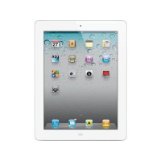We normally do not publish press releases directly, but this is an exciting announcement. It is a step in the right direction, however, according to the article, it is only the Lead Management system that is integrated. We would have liked to have seen the whole Sales Force Automation process linked over to Plex, including Opportunity Management, but this is a good start.
Plex Online Cloud ERP Offers Customers Expanded Integration
Plex Systems partners with Revolution Group to offer seamless ERP, CRM
AUBURN HILLS, Mich., Jan. 4, 2011 — Plex Systems, Inc., provider of the No. 1 rated manufacturing ERP software, today announced additional functionality options for its Plex Online customers who use Salesforce.com.
With a range of ERP features in its comprehensive system, Plex Online is already one of the top SaaS / cloud computing manufacturing solutions. Manufacturers that use bothSalesforce.com and Plex Online in their business operations will benefit from the seamless integration of the two applications.
Together with implementation partner Revolution Group, Plex Systems researched how Plex Online and Salesforce.com could interface and created a fully cloud-based integration of the lead management process.
“Plex Online provides a complete suite of CRM tools for managing the total sales process, from powerful quote tracking and order entry modules, to release accounting and shipment tracking, to revenue reporting,” noted Patrick Fetterman, Plex Systems vice president. “Yet, for customers that must keep their Salesforce.com deployment, Plex Online will now be able to integrate with it. Teaming with Revolution Group, the integration with Salesforce.com is an opportunity to provide manufacturers with even more functionality.”
Launched as one of the original cloud computing companies in 1999, Salesforce.com reported annual earnings exceeded $1.3b in the fiscal year ending on January 31, 2010. Based on Salesforce.com’s real-time, multitenant architecture, the company’s platform and CRM applications have revolutionized the way companies collaborate and communicate with their customer.
About Revolution Group
Revolution Group, a Premier Plex Systems Implementation Partner and Registered Salesforce.com Partner, has been delivering solid, business-driven IT solutions and services to manufacturers since 1995. Revolution Group combines technology, a broad understanding of business best practices, and the best hardware and software alternatives to help bring clients cost-effective, reliable and scalable solutions. Their expertise in Plex Online implementation ensures clients the competitive advantage that technology promises. For more information, visit www.revolutiongroup.com.
About Plex Systems, Inc.
Plex Systems, Inc. is the developer of Plex Online, a SaaS ERP (software as a service) cloud ERP solution for the manufacturing enterprise. Plex Online offers industry-leading features for virtually every department within a manufacturer, including Manufacturing Execution Systems (MES) and Quality Management Systems (QMS) for the shop floor, Supply Chain Management (SCM) for procurement, and Enterprise Resource Planning (ERP) for finance and management. Plex Online’s comprehensive functional coverage delivers a “shop floor to top floor” view of a manufacturer’s operations, enabling management to run its business at maximum efficiency. Founded in 1995, Plex Systems is headquartered in Auburn Hills, Michigan, with customers around the globe. Follow Plex Systems at twitter.com/PlexSystems. More information is available at www.plex.com.
Plex Systems and Plex Online are trademarks of Plex Systems, Inc.
Prathima Ramesh
Markit Strategies and PR, LLC
pr******@ma**************.com |734.578.4527
www.markitstrategiesandpr.com



